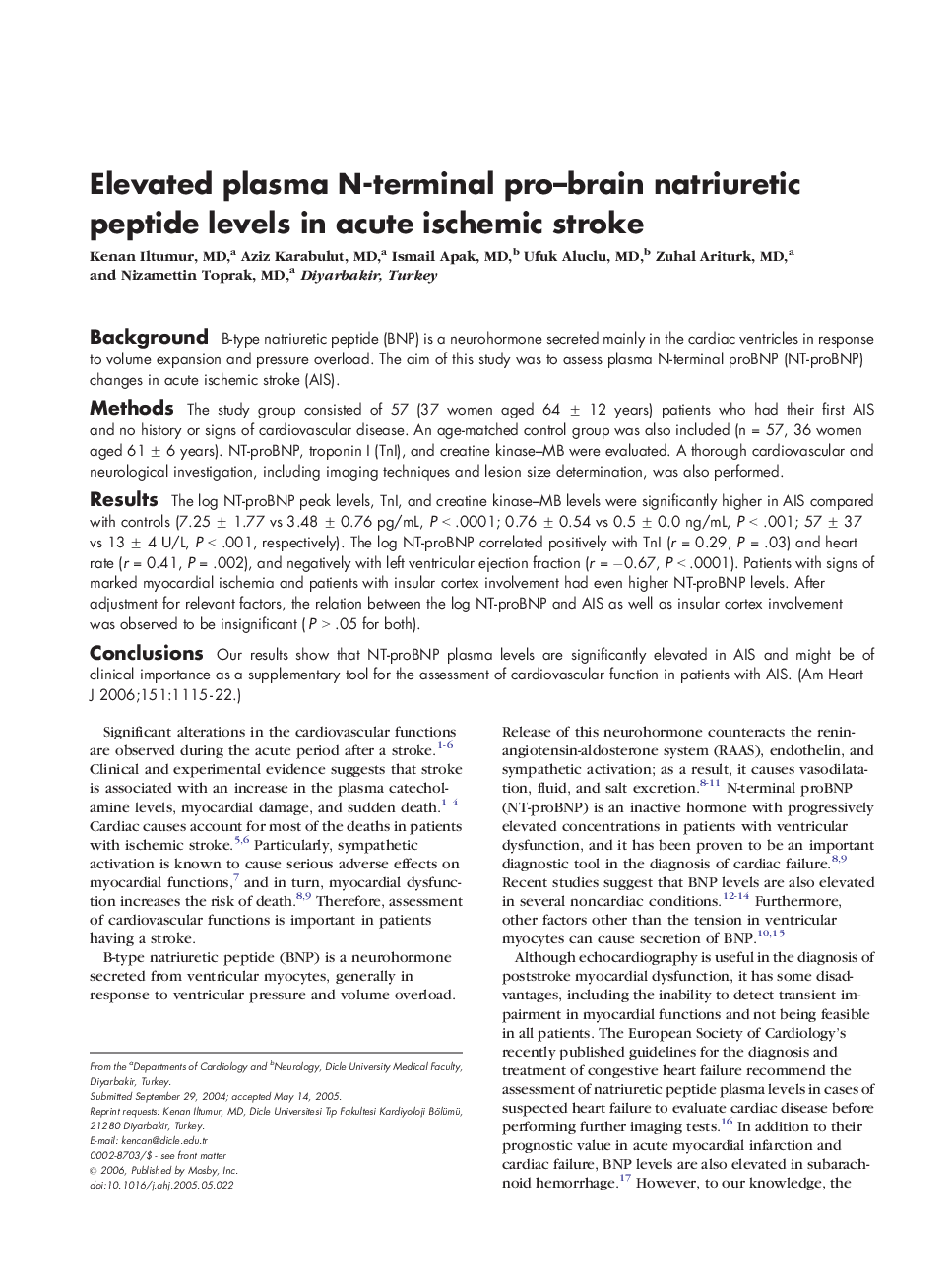| Article ID | Journal | Published Year | Pages | File Type |
|---|---|---|---|---|
| 2851201 | American Heart Journal | 2006 | 8 Pages |
BackgroundB-type natriuretic peptide (BNP) is a neurohormone secreted mainly in the cardiac ventricles in response to volume expansion and pressure overload. The aim of this study was to assess plasma N-terminal proBNP (NT-proBNP) changes in acute ischemic stroke (AIS).MethodsThe study group consisted of 57 (37 women aged 64 ± 12 years) patients who had their first AIS and no history or signs of cardiovascular disease. An age-matched control group was also included (n = 57, 36 women aged 61 ± 6 years). NT-proBNP, troponin I (TnI), and creatine kinase–MB were evaluated. A thorough cardiovascular and neurological investigation, including imaging techniques and lesion size determination, was also performed.ResultsThe log NT-proBNP peak levels, TnI, and creatine kinase–MB levels were significantly higher in AIS compared with controls (7.25 ± 1.77 vs 3.48 ± 0.76 pg/mL, P < .0001; 0.76 ± 0.54 vs 0.5 ± 0.0 ng/mL, P < .001; 57 ± 37 vs 13 ± 4 U/L, P < .001, respectively). The log NT-proBNP correlated positively with TnI (r = 0.29, P = .03) and heart rate (r = 0.41, P = .002), and negatively with left ventricular ejection fraction (r = −0.67, P < .0001). Patients with signs of marked myocardial ischemia and patients with insular cortex involvement had even higher NT-proBNP levels. After adjustment for relevant factors, the relation between the log NT-proBNP and AIS as well as insular cortex involvement was observed to be insignificant (P > .05 for both).ConclusionsOur results show that NT-proBNP plasma levels are significantly elevated in AIS and might be of clinical importance as a supplementary tool for the assessment of cardiovascular function in patients with AIS.
